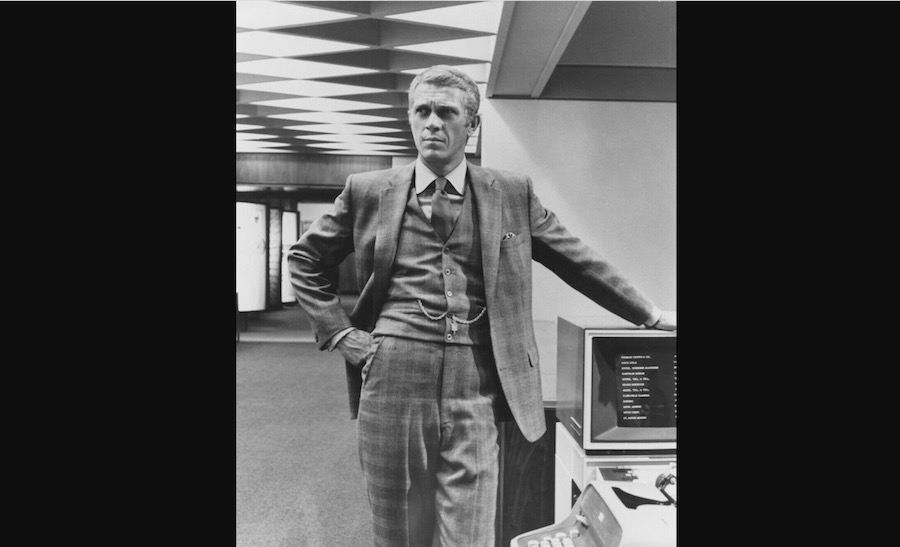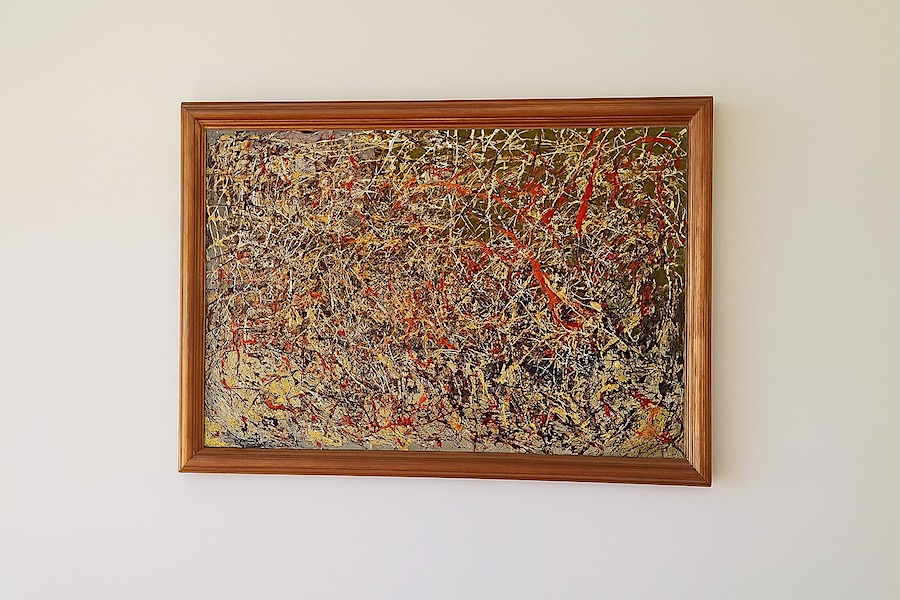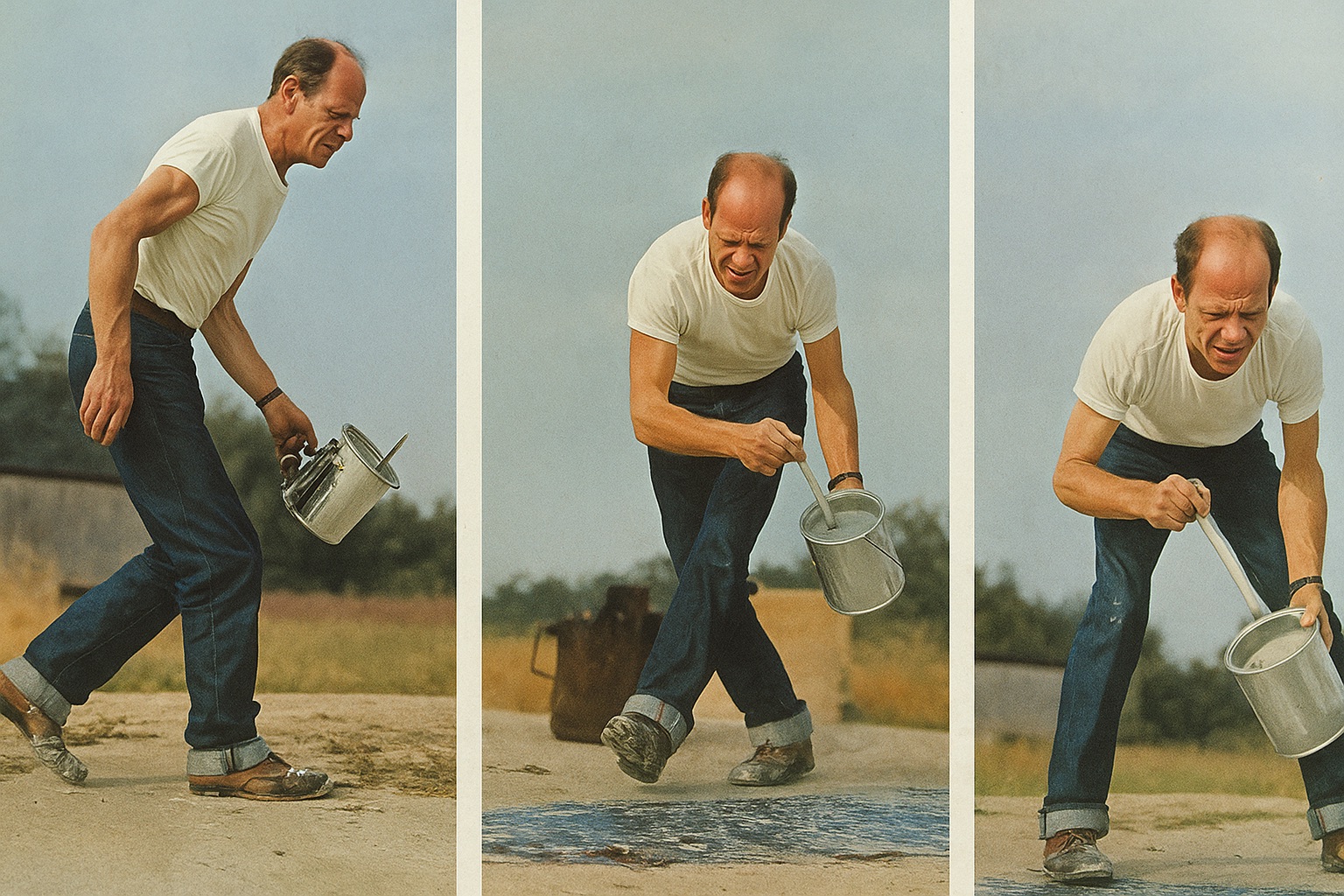A Jackson Pollock ‘Drip’ painting once thought to be lost has become the focus of a transatlantic legal battle. The work, valued at around $65 million, is now at the centre of a lawsuit filed in Los Angeles County by Molly McQueen, granddaughter of actor Steve McQueen, who claims the piece was never legally transferred out of the family.
The dispute reaches back more than six decades, when McQueen was at the height of his fame and immersed in the world of motorbikes, Malibu real estate, and the shifting art scene of the 1960s. According to the complaint, McQueen handed over the Pollock drip painting to Rudolph and Pamela Borchert as part of an anticipated trade: a motorcycle and property in Latigo Canyon. The arrangement, Molly McQueen argues, was never completed. One of the Borcherts crashed the bike; the land was never transferred, and the actor allegedly asked for the painting back. The lawsuit claims the request went unanswered, leaving the work in the Borcherts’ possession.

South Carolina lawyer Brent Borchert noted that the painting was part of the backdrop of his childhood. “Growing up, it was just another picture on the wall,” he told the Mirror. “I didn’t dislike it, but I wasn’t the biggest fan.” The work hung in the family’s Malibu home until the deaths of his parents, Rudolph and Pamela, after which Brent and his sister Bettina inherited it along with the rest of their collection.
Pollock only became a point of dispute years after his death. “When I was younger, I asked my mother about it once,” Borchert said. “She gave me a vague answer about a motorbike and a house. It was never a big discussion.” He remains open but cautious: “If someone can prove something’s amiss, I’ll listen. But until then, I see no reason to let it go.”
Once just another object caught in the background of family photographs, the canvas has now been recast as a possible fortune. At auction, it could eclipse the $65 million valuation proposed by the McQueen estate, especially in light of the prices Pollock has commanded in recent years.
The Pollock, long overlooked in family photographs, has now been pushed into the spotlight as a potential multimillion-pound asset. At auction, it could even exceed the $65 million figure cited by the McQueen estate, particularly given the record prices Pollock has achieved in recent years.
Steve McQueen, dubbed the “King of Cool,” remains one of the most recognisable figures of post-war Hollywood. His filmography – including The Great Escape, Bullitt, and Papillon – cemented his reputation as a cultural icon. Off-screen, he cultivated a passion for fast cars, motorbikes, and collecting. His personal life often intersected with these pursuits, and it is here that the disputed painting enters the narrative.
McQueen and Rudolph Borchert are said to have bonded over their love of motorcycles. Brent recalls his father’s enthusiasm: “Motorbikes were a big thing in our family. I know Dad had a serious crash on one, which might be the same accident mentioned in the lawsuit. He ended up in the emergency room with Mum riding pillion.”
The disputed gains weight from the sheer importance of Pollock within 20th-century art history. A central figure in the Abstract Expressionist movement, his drip paintings altered the course of modern painting. Works such as Number 17A (1948), which sold privately in 2016 for $200 million, are now regarded as the crown jewels of American post-war art.
The painting in question has not been publicly identified by title, although its value suggests it is a work of considerable significance. That it once hung unnoticed in a Malibu living room speaks volumes about how differently Pollock’s reputation was perceived in the 1960s compared to today.

Provenance – the ownership trail that underpins an artwork’s legitimacy plays strongly in this case. Molly McQueen’s suit states that the Pollock never legally left her grandfather’s possession, and therefore rightfully belongs to his heirs. Brent Borchert, while conceding a faint recollection of a “deal,” maintains that his parents acquired it legitimately and that he and his sister are the rightful owners.
The legal claim, filed in Los Angeles, underscores that McQueen “made a demand for return of the Pollock painting within a reasonable time thereafter.” If proven, this point could determine the case, since an unfulfilled exchange may void the transfer of ownership.
The case intertwines the mythology of two American figures – McQueen, the cinematic rebel who embodied 1960s counter-culture glamour, and Pollock, the hard-drinking artist whose technique of dripping paint across raw canvas redefined modernism. Both men died relatively young, leaving behind contested legacies that still command fascination and, in Pollock’s case, staggering sums.
For Borchert, now 58 and living in South Carolina with his fiancée and two daughters, the lawsuit has been both disruptive and oddly revealing. “I never thought of the painting as anything other than part of the family home,” he said. “Looking back at photos, it wasn’t even the centrepiece of the room – others surrounded it, my parents liked it more. We never talked about selling it. Money wasn’t the issue.”
Molly McQueen, meanwhile, has become the public face of her grandfather’s estate in this matter, pressing the claim that the drip painting rightfully belongs with McQueen’s heirs. Her lawyers have not commented publicly beyond the filings.
The case will hinge on documents and testimony tracing back to a time when McQueen was dining, drinking, and riding with Hollywood’s inner circle along the California coast. Witnesses are scarce, and records from informal exchanges in the 1960s are often patchy. Yet the stakes could hardly be higher: a Pollock of this magnitude would rank among the most valuable works to enter dispute in recent memory.
Whether the court will side with McQueen’s granddaughter or with the Borchert family remains to be seen. But what is clear is that a casual arrangement between friends – a painting, a motorcycle, a Malibu house – has turned into a courtroom drama worth tens of millions.

